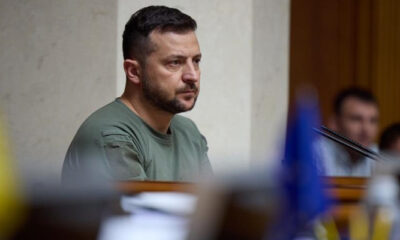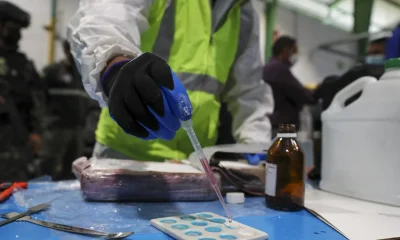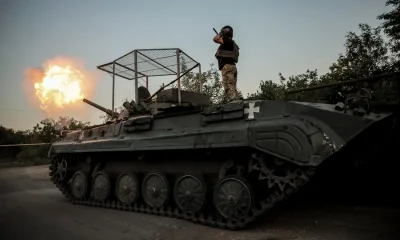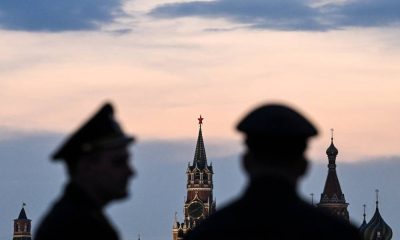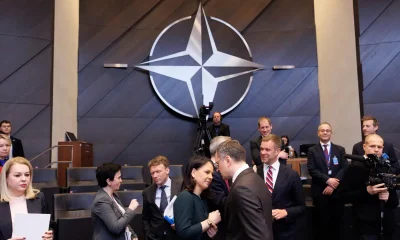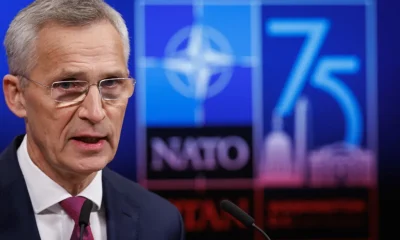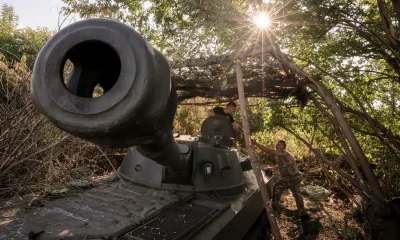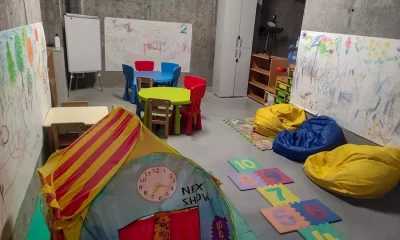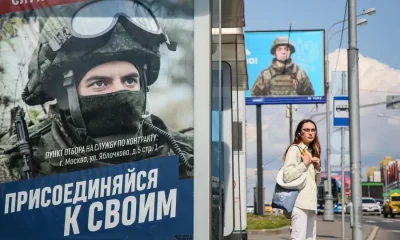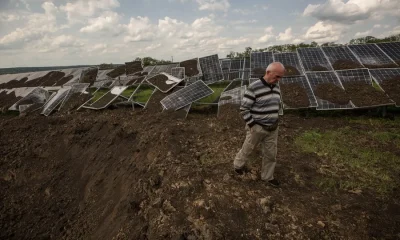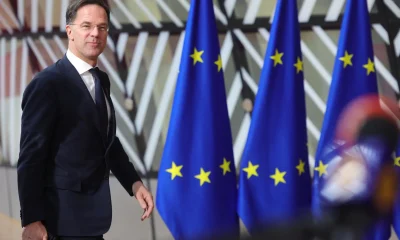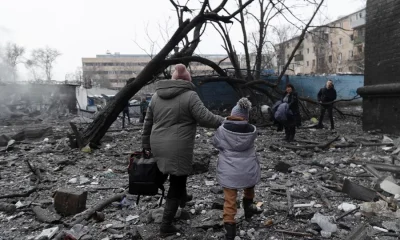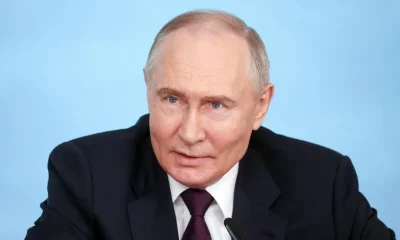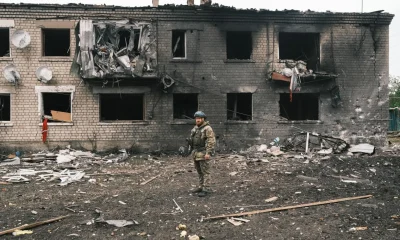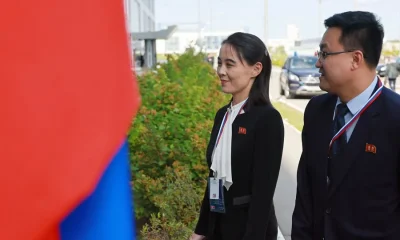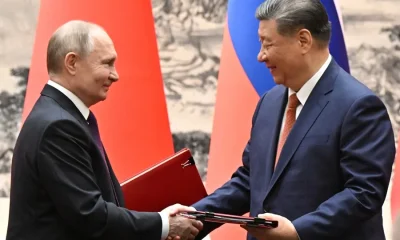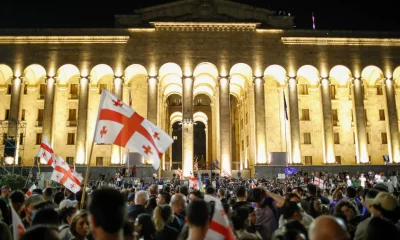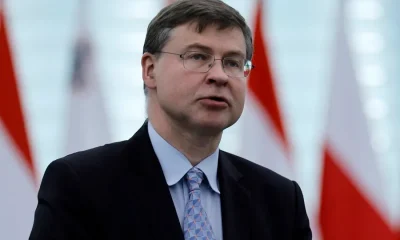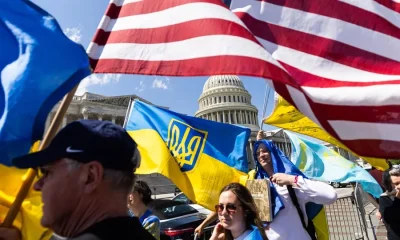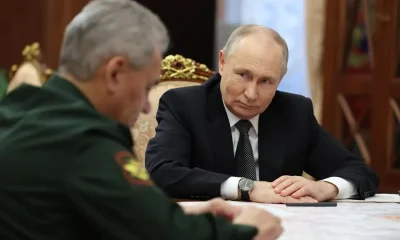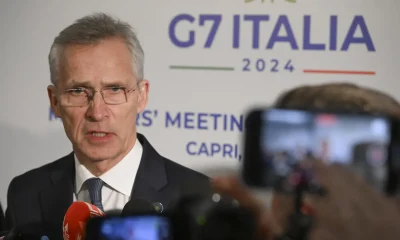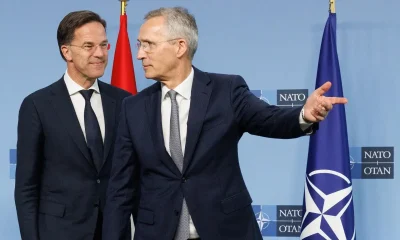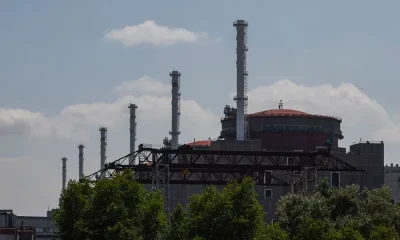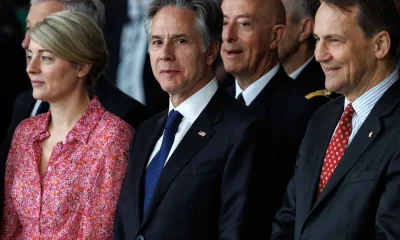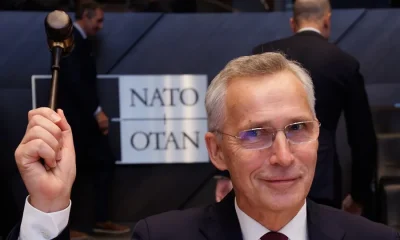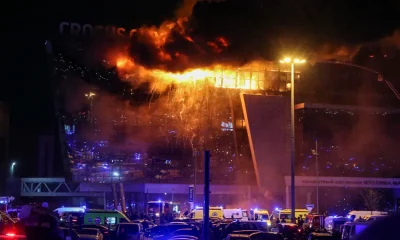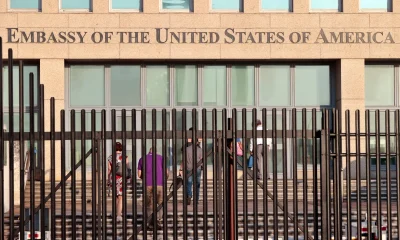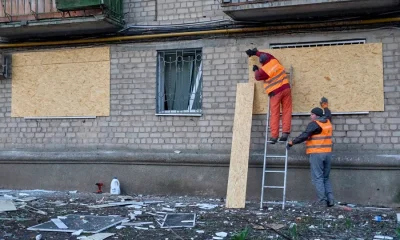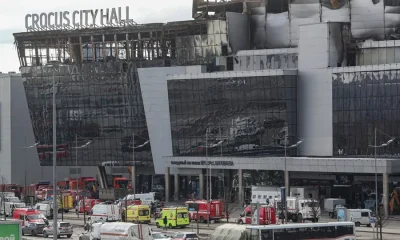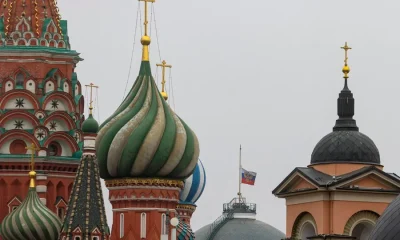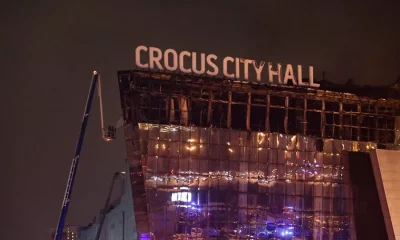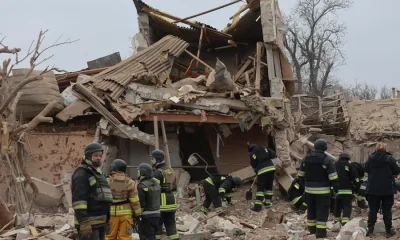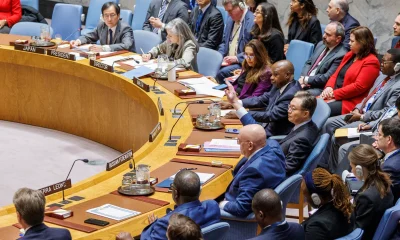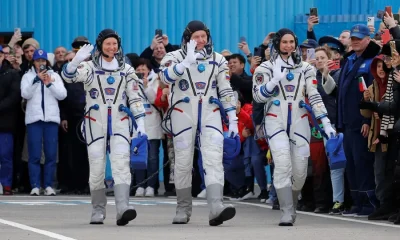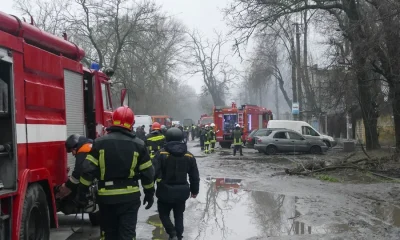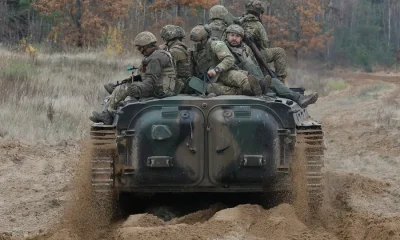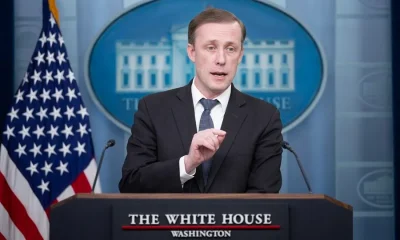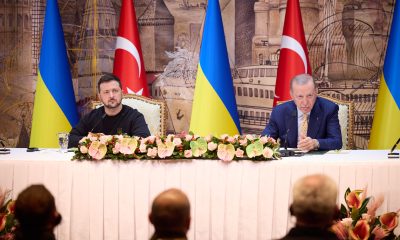International
Russia and NATO, the antagonism that can lead to direct confrontation
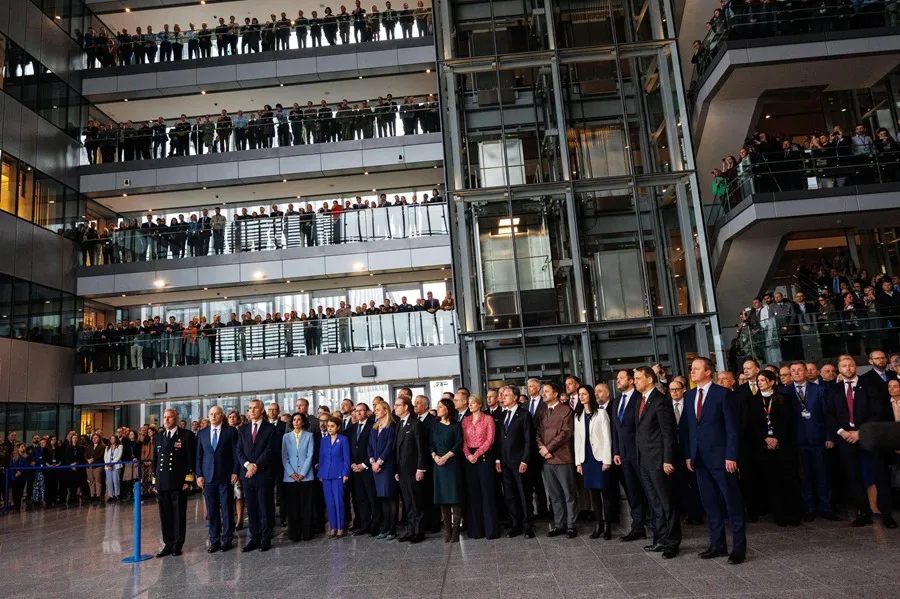
The Kremlin warned today on the 75th anniversary of NATO that relations between Russia and the Western bloc are on the verge of “direct confrontation” due to the involvement of the allied countries in the war in Ukraine.
“Relationships, practically, have now led to a level of direct confrontation,” said Dmitri Peskov, presidential spokesman, at his daily telephone press conference.
The antagonism between Moscow and the Alliance has experienced very tense moments since 1949, both in the times of the Soviet Union – construction of the Berlin Wall, Cuban Crisis, invasion of Czechoslovakia and Afghanistan – and with the Russian Federation since 1991 (bombing of Yugoslavia and the war with Georgia).
But the tension has reached unsuspected limits since Russia started the military campaign in Ukraine in February 2022, a conflict that has strengthened NATO, something that took the Kremlin on guard off guard.
“NATO continues to demonstrate its essence, since NATO was conceived as an alliance, configured, created and directed by the United States as an instrument of confrontation, especially on the European continent. And, in this regard, it continues to fulfill its function,” said the presidential spokesman.
Peskov assured that this block “at the present time does not contribute in any case to the security, predictability and stability of security on the continent.”
“Contrary, it is a destabilizing factor,” he said.
In addition, he accused the allies of continuing their approach and reinforcing the presence of their military infrastructure near the Russian border, one of the arguments used at the time by Moscow to invade the neighboring country.
The Kremlin has been accusing NATO of participating “directly” in the war in Ukraine for months by supplying huge amounts of weapons to Kiev, which, according to Moscow, will not prevent its victory and will only prolong the conflict.
“The NATO countries, the Alliance itself, is not that it is constantly increasing (their presence), but that it has already been involved in the conflict in Ukraine,” Peskov said.
In turn, Moscow has condemned the comments of some European leaders – specifically, the French President, Emmanuel Macron – on the possible sending of troops to Ukraine, something that the White House has totally ruled out.
In fact, the Kremlin today denied “plans to make contacts at the highest level,” in particular with Macron.
“President Vladimir Putin remains open to dialogue with those who express an interest in developing relations with our country,” said Peskov, who reiterated that the president “always” is willing to sit down and negotiate “to solve the most complex global and regional problems.”
At the same time, Russia has denied plans to attack NATO member countries and that it has “aggressive intentions” against Poland and the Baltics.
“Now they say that Ukraine is about to lose, which cannot be allowed, since as soon as Ukraine loses, Russia will attack NATO. Our president has already said it, ‘silly and nonsense,’” said Sergey Lavrov, Russian Foreign Minister.
That does not detract from the fact that the Baltics have decided to strengthen security and that Finland and Sweden, neutral countries with pragmatic relations with Moscow for decades, decided to join NATO.
That is considered Putin’s biggest miscalculation, since Russia now has 1,300 kilometers more border with the Alliance than before the war.
The brutal attack on March 22 against a concert hall on the outskirts of Moscow, which left 145 dead and highlighted the lack of foresight of the Russian security forces, has only exacerbated the tension.
The West warned about possible jihadist attacks two weeks in advance, warnings that were disqualified by Putin, who insists on the existence of a “Ukrainian print.”
“Russia behaves in such a way in the international arena that it can hardly be attacked by Islamic fundamentalists,” Putin said when meeting with the union members on Thursday.
The newspaper ‘The Washington Post’ reported that the United States even mentioned the Crocus City Hall as a possible target, news that was immediately branded as “disinformation” by Moscow.
“Today, Ukraine (…) has become an openly terrorist state,” Lavrov said.
Precisely, the defense ministers of Russia, Sergei Shoigu, and France, Sébastien Lecornu, addressed the fight against international terrorism on Wednesday in their first telephone conversation in a year and a half.
“France does not have any information that allows a link to be established between this attack and Ukraine. We ask Russia to stop manipulating,” said the official statement issued by Paris.
International
U.S. Senate Rejects Budget, Bringing Government Closer to Shutdown Amid DHS Dispute

The U.S. Senate voted on Thursday against a budget proposal in a move aimed at pressuring changes at the Department of Homeland Security (DHS), following the killing of two civilians during a deployment of immigration agents in Minneapolis.
All Senate Democrats and seven Republican lawmakers voted against the bill, which requires 60 votes to advance, pushing the country closer to a partial government shutdown that would cut funding for several agencies, including the Pentagon and the Department of Health.
The rejection came as Senate leaders and the White House continue negotiations on a separate funding package for DHS that would allow reforms to the agency. Proposed measures include banning Immigration and Customs Enforcement (ICE) agents from wearing face coverings and requiring them to use body-worn cameras during operations.
The vote took place just hours after President Donald Trump said he was “close” to reaching an agreement with Democrats and did not believe the federal government would face another shutdown, following last year’s record stoppage.
“I don’t think the Democrats want a shutdown either, so we’ll work in a bipartisan way to avoid it. Hopefully, there will be no government shutdown. We’re working on that right now,” Trump said during a Cabinet meeting at the White House.
International
Trump Says Putin Agreed to One-Week Halt in Attacks on Ukraine Amid Extreme Cold

U.S. President Donald Trump said on Thursday that he secured a commitment from Russian President Vladimir Putinto halt attacks against Ukraine for one week, citing extreme weather conditions affecting the region.
“Because of the extreme cold (…) I personally asked Putin not to attack Kyiv or other cities and towns for a week. And he agreed. He was very pleasant,” Trump said during a Cabinet meeting broadcast by the White House.
Trump acknowledged that several advisers had questioned the decision to make the call.
“A lot of people told me not to waste the call because they wouldn’t agree. And he accepted. And we’re very happy they did, because they don’t need missiles hitting their towns and cities,” the president said.
According to Trump, Ukrainian authorities reacted with surprise to the announcement but welcomed the possibility of a temporary ceasefire.
“It’s extraordinarily cold, record cold (…) They say they’ve never experienced cold like this,” he added.
Ukrainian President Volodymyr Zelensky later commented on the announcement, expressing hope that the agreement would be honored.
International
Storm Kristin Kills Five in Portugal, Leaves Nearly 500,000 Without Power

Storm Kristin, which battered Portugal with heavy rain and strong winds early Wednesday, has left at least five people dead, while nearly half a million residents remained without electricity as of Thursday, according to updated figures from authorities.
The revised death toll was confirmed to AFP by a spokesperson for the National Emergency and Civil Protection Authority (ANPEC). On Wednesday, the agency had reported four fatalities.
Meanwhile, E-Redes, the country’s electricity distribution network operator, said that around 450,000 customers were still without power, particularly in central Portugal.
Emergency services responded to approximately 1,500 incidents between midnight and 8:00 a.m. local time on Wednesday, as the storm caused widespread disruptions.
The Portuguese government described Kristin as an “extreme weather event” that inflicted significant damage across several regions of the country. At the height of the storm, as many as 850,000 households and institutions lost electricity during the early hours of Wednesday.
Several municipalities ordered the closure of schools, many of which remained shut on Thursday due to ongoing adverse conditions.
Ricardo Costa, regional deputy commander of the Leiria Fire Brigade, said residents continue to seek assistance as rainfall persists.
“Even though the rain is not extremely intense, it is causing extensive damage to homes,” he noted.
In Figueira da Foz, a coastal city in central Portugal, strong winds toppled a giant Ferris wheel, underscoring the severity of the storm.
-

 Central America3 days ago
Central America3 days agoGuatemala seizes over a ton of cocaine hidden in flour at Pacific port
-

 International5 days ago
International5 days agoDelcy Rodríguez seeks political agreements after Maduro’s ouster
-

 International3 days ago
International3 days agoHistoric snowstorm paralyzes Toronto after 60 centimeters of snow
-

 International3 days ago
International3 days agoSpain’s irregular migrant population rises to 840,000, study finds
-

 Central America2 days ago
Central America2 days agoGuatemala Police Arrest Prison Guard Caught in the Act of Extortion
-

 Central America2 days ago
Central America2 days agoHonduras swears in conservative president Asfura after disputed election
-

 International5 days ago
International5 days agoFederal immigration agents kill man in Minneapolis, sparking protests and outrage
-

 International1 day ago
International1 day agoFootball Fan Killed in Clashes After Colombian League Match
-

 Central America2 days ago
Central America2 days agoBukele leads public trust rankings as UCA survey highlights gains in security
-

 International2 days ago
International2 days agoWinter Storm Fern Leaves 30 Dead and Over One Million Without Power Across the U.S.
-

 International2 days ago
International2 days agoDoomsday clock moves to 85 seconds before midnight amid rising global risks
-

 Sin categoría2 days ago
Sin categoría2 days agoEight Killed in Series of Armed Attacks in Ecuador’s Manabí Province
-

 International3 days ago
International3 days agoRights group says nearly 6,000 killed in Iran protest crackdown
-

 International1 day ago
International1 day agoMissing Spanish Sailor Rescued After 11 Days Adrift in Mediterranean
-

 International1 day ago
International1 day agoRubio Says U.S. Could Participate in Follow-Up Russia-Ukraine Talks
-

 Central America1 day ago
Central America1 day agoGuatemala President Says Starlink Terminal Found Inside Prison
-

 International2 days ago
International2 days agoSpain approves plan to regularize up to 500,000 migrants in Historic Shift
-

 Sin categoría2 days ago
Sin categoría2 days agoEl Salvador Launches Fourth Year of Ocean Mission to Protect Marine Ecosystems
-

 International3 days ago
International3 days agoVenezuela frees at least 80 political prisoners, NGO says
-

 International3 days ago
International3 days agoEU launches new probe into X over AI-generated fake nude images
-

 International3 days ago
International3 days agoFrance debates ban on social media for children under 15
-

 International3 days ago
International3 days agoSevere winter storm grips U.S., leaves multiple dead as extreme cold persists
-

 International5 hours ago
International5 hours agoU.S. Senate Rejects Budget, Bringing Government Closer to Shutdown Amid DHS Dispute
-

 International5 hours ago
International5 hours agoMan Arrested After Vehicle Crashes Into Jewish Institution in Brooklyn
-

 International5 hours ago
International5 hours agoStorm Kristin Kills Five in Portugal, Leaves Nearly 500,000 Without Power
-

 International5 hours ago
International5 hours agoTrump Says Putin Agreed to One-Week Halt in Attacks on Ukraine Amid Extreme Cold

























